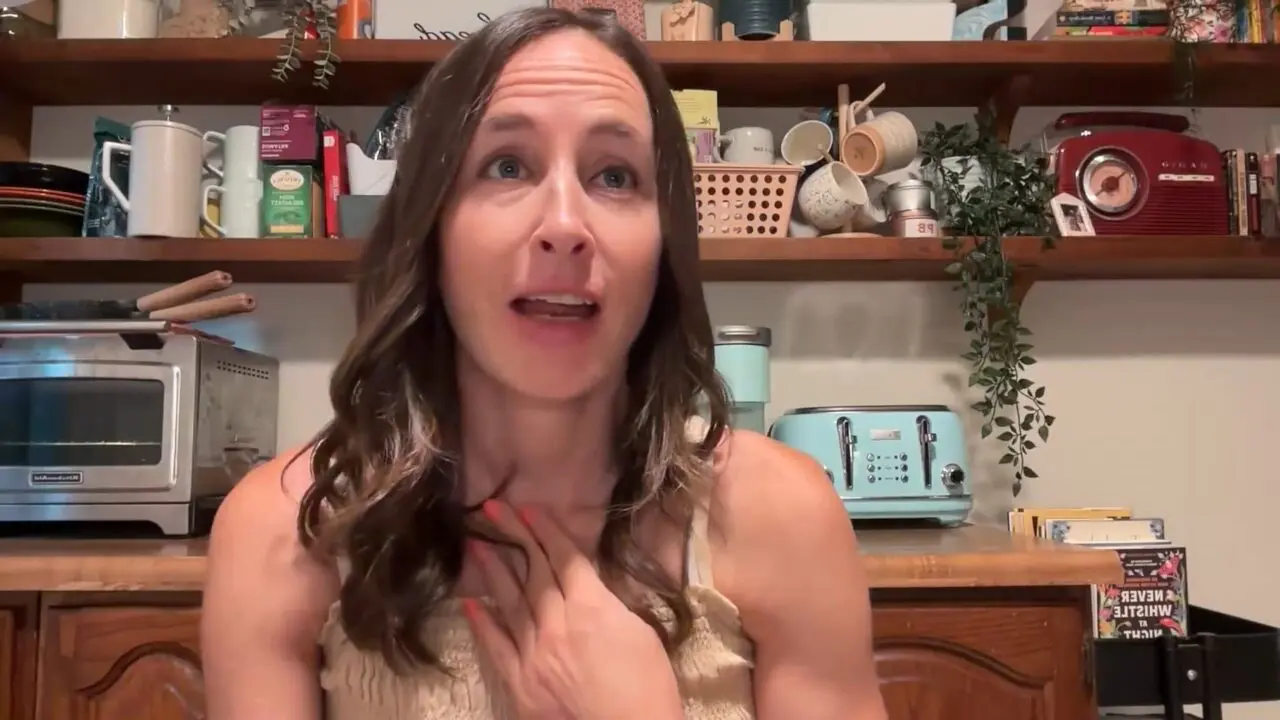Values
Values are the principles and beliefs that are most important to you in life. Knowing them can help you find more joy, purpose, and connection.
Stories

Many years ago, I was feeling really existential about everything. Like, it didn't feel like there was a reason to exist. Nothing seemed interesting to me anymore.

I was really depressed and experiencing a lot of suicidal thoughts...There can be this lack of motivation or direction that can feel sort of crushing.

There's so much going on all the time with work, I can lose track of some of the other parts of me. Today, waking up, I set the intention of trying to connect with other values when it gets really crazy.

For me, values work like a dictionary to understand my emotions better. Whenever I have a reaction that people might call overreacting, I check in with my values.

I really thought about what my values were...at the end of the day, that's all just my ego. The thing that really mattered for me was being there for my family.
Community Tips
I had to reconcile that my values have changed. I was still acting as if my old values were my new values.
When looking at a big list, it helps to start by picking your top 15, then 10, then 5 or 3. It’s like choosing your favorite stuffed animal as a kid, you don’t want anyone to be left out.
Your values don’t have to match your culture. Sometimes realizing that helps explain misery.
When I first got help for having suicidal thoughts, my partner had helped push me to go, and one of the things that she said that ended up I guess sort of sticking with me was reminding me that one of my values is solving my problems. She said 'The thoughts you're having are a problem that you need to solve, like that's something that you do and you care about doing, so why don't you do that?' That for whatever reason clicked with me and it was a big reason I went and got help.
I find this skill central to my work on defining my life worth living. Whenever I feel really weak or not in touch with my goals, I can go back to my values that helped me make up my goals for building a life worth living. I try to trust that version of me, and hold on.
I was crying watching Drag Race because one of the final two queens is from Taiwan. She was talking about how her mom and her best friend came to watch the finale, and she was talking about how lucky she felt to have a mom that had supported her her entire life and that sort of made me think about just how much I value family and having those people around you that support you.
I had a moment where I got to see an author that I loved speak. He was sharing his writing process and I started sobbing in the middle of the audience, which is not normal for me…but he was describing the meaning that words and writing have in my life in a way I had never been able to say before, and it anchored me back to a value I had lost for a long time.
Why Use this Skill
If you don’t know what you want or what matters most to you, it’s going to be much harder to create a meaningful and enjoyable life. Identifying your values, and then doing things in alignment with those values, is absolutely essential if you want to feel more joy, pride, and fulfillment.
When to Use This Skill
Use Values when:
- You want to feel more joy, pride, and connection in your life.
- You want to practice self-care.
- You want to build a Life Worth Living.
Overview Video
KikiHow to Use This Skill
To identify your Values, you have a few options.
- Learn from other people’s values.
- Talk to your friends about what their values are. Think about the values your parents taught you growing up. Do you want to be like them, or do you want to be different? Are the same things important to you?
- Review lists of values and circle anything that resonates with you. (See “resources” below.) There’s no such thing as “too many” values!
- Pay attention to your emotions.
- Use skills like Mindfulness of Current Emotion and Emotions as Signals to get more in touch with your needs and desires.
- Notice when you feel most happy, content, peaceful, and connected. What’s happening at those times? What are you doing? Who are you with? Where are you? The answers to those questions can help you identify what is important to you, and what you want more of in your life or in the world.
- Notice when you feel angry or hurt. What’s happening during those times? The answer to that question can help you identify what is important to you, and what you want less of in your life or in the world.
- Consider yourself in different areas of your life.
- Separate your life into different “categories” of how you spend your time: Familial Relationships, Friend Relationships, Romantic Relationships, Community, Hobbies, Rest, Work, Education, Sexuality, Personal Growth, Health, etc.
- For the main areas of your life, ask yourself: What matters most to me in this area? What are my strengths? What are my weaknesses? How do I determine if this part of my life is “going well” or not?
- Your Values can likely be found in your answers to these questions.
- Think about how you want to be perceived.
- What are the words that you hope people use to describe you?
- What are the things you want to be known for?
- If you feel comfortable, think about your funeral. What would you want said about you in your eulogy? How do you want to be remembered?
- Your hopes of how you want to be perceived may give you clues about what your strongest values are.
Resources
Identifying Values and “Life Worth Living” Goals
An article that provides a guide for identifying values and goals
Value‑Based Unmasking for Autistic People
A blog post that explains unmasking with the Values Based Integration Process
List of Possible Values From Brené Brown
A list of common core values used by Brené Brown and her team
List of Possible Values From James Clear
A list of common core values used by leadership institutions and programs
DBT Skills Book Handout with List of Possible Values
DBT emotional regulation handout that includes a values and priorities clarification worksheet